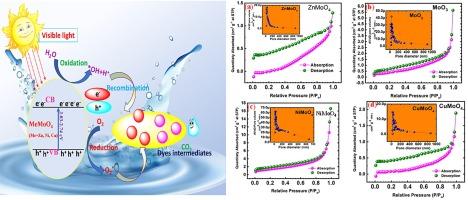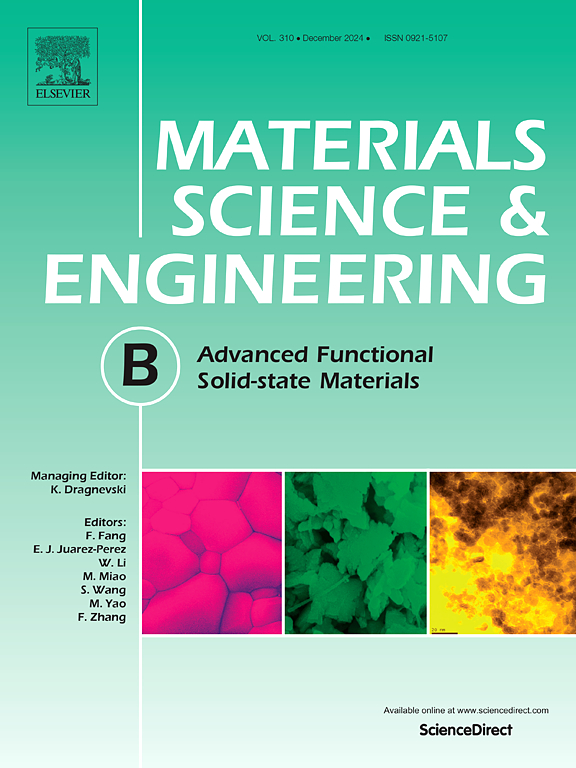Unlocking the potential of metal Molybdates: A simple chemical method for synthesis and their photocatalytic properties under visible light irradiation
IF 3.9
3区 材料科学
Q2 MATERIALS SCIENCE, MULTIDISCIPLINARY
引用次数: 0
Abstract
This study presents a comprehensive characterization of metal molybdate compounds (ZnMoO4, NiMoO4, and CuMoO4) synthesized via a hydrothermal method followed by a conventional solid-state reaction. Detailed structural and morphological analyses were conducted using X-ray diffraction (XRD) to confirm phase purity and crystal structures, scanning electron microscopy (SEM) and FE-TEM for morphological characterization, and X-ray photoelectron spectroscopy (XPS) for surface chemical composition. Raman spectroscopy provided insights into band mode vibrations in MoO3 and its metal molybdates, while UV–Vis spectroscopy was employed to estimate the band gaps. The photocatalytic performance of these compounds was assessed through the degradation of methylene blue dye under visible light irradiation, with CuMoO4 (CM) demonstrating superior activity, followed by NiMoO4 (NM) and ZnMoO4 (ZM). Remarkably, CM achieved over 99.5% degradation of RhB dye within 180 min, outperforming the other molybdates. Stability tests over three cycles revealed negligible catalyst loss after 630 min, affirming the exceptional stability of CM compared to ZM and NM. Furthermore, the efficacy of MO and ZM as heterogeneous catalysts for the degradation of mixed organic dye pollutants from textile industry effluents was evaluated, underscoring the significant potential of these metal molybdates, particularly CM, for environmental remediation applications.

求助全文
约1分钟内获得全文
求助全文
来源期刊

Materials Science and Engineering: B
工程技术-材料科学:综合
CiteScore
5.60
自引率
2.80%
发文量
481
审稿时长
3.5 months
期刊介绍:
The journal provides an international medium for the publication of theoretical and experimental studies and reviews related to the electronic, electrochemical, ionic, magnetic, optical, and biosensing properties of solid state materials in bulk, thin film and particulate forms. Papers dealing with synthesis, processing, characterization, structure, physical properties and computational aspects of nano-crystalline, crystalline, amorphous and glassy forms of ceramics, semiconductors, layered insertion compounds, low-dimensional compounds and systems, fast-ion conductors, polymers and dielectrics are viewed as suitable for publication. Articles focused on nano-structured aspects of these advanced solid-state materials will also be considered suitable.
 求助内容:
求助内容: 应助结果提醒方式:
应助结果提醒方式:


